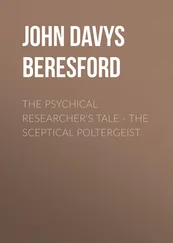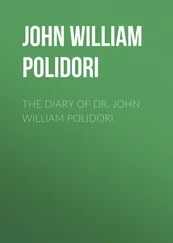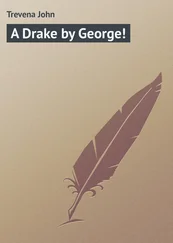John Trevena - Furze the Cruel
Здесь есть возможность читать онлайн «John Trevena - Furze the Cruel» — ознакомительный отрывок электронной книги совершенно бесплатно, а после прочтения отрывка купить полную версию. В некоторых случаях можно слушать аудио, скачать через торрент в формате fb2 и присутствует краткое содержание. Жанр: foreign_prose, на английском языке. Описание произведения, (предисловие) а так же отзывы посетителей доступны на портале библиотеки ЛибКат.
- Название:Furze the Cruel
- Автор:
- Жанр:
- Год:неизвестен
- ISBN:нет данных
- Рейтинг книги:3 / 5. Голосов: 1
-
Избранное:Добавить в избранное
- Отзывы:
-
Ваша оценка:
- 60
- 1
- 2
- 3
- 4
- 5
Furze the Cruel: краткое содержание, описание и аннотация
Предлагаем к чтению аннотацию, описание, краткое содержание или предисловие (зависит от того, что написал сам автор книги «Furze the Cruel»). Если вы не нашли необходимую информацию о книге — напишите в комментариях, мы постараемся отыскать её.
Furze the Cruel — читать онлайн ознакомительный отрывок
Ниже представлен текст книги, разбитый по страницам. Система сохранения места последней прочитанной страницы, позволяет с удобством читать онлайн бесплатно книгу «Furze the Cruel», без необходимости каждый раз заново искать на чём Вы остановились. Поставьте закладку, и сможете в любой момент перейти на страницу, на которой закончили чтение.
Интервал:
Закладка:
Peter and Mary were savages, although they would have used strange language had any one called them so. They did not display their genealogical tree upon their cottage wall. Had they done so it would have shown, had it been accurate, that they were descended from the Gubbingses, who, as every man knows, were as disreputable a set of savages as have ever lived. This pedigree would have shown that a certain young Gubbings had once run away with a certain Miss Gubbings to whom he was attached, and with whom he was probably related more or less intimately. Fearing capture, as they had conveyed from the gorge of the Lyd as much of the portable property of their connections as they could conveniently handle, the young couple assumed the name of Tavy from the river beside which they settled. They had a number of little Tavies, who, it was said, founded the villages of Peter Tavy and Mary Tavy, which good Christians subsequently canonised; and who, by intermarriage without much respect for the tie of consanguinity, or for such a form of religious superstition as a marriage service – if, indeed, they had ever heard of such a thing – became in time a rival band of Scythians almost as formidable to law-abiding commoners as their relations in Gubbings Land. Peter and Mary were direct descendants of these pleasant people. They didn't know it, however. It was just as well they were in ignorance, because knowledge of the truth might have turned their heads. The chief of the Gubbings was a king in his own land; therefore Peter and Mary would certainly have boasted that they were of royal blood; and Peter would assuredly have told his neighbours that if every man had his rights he would be occupying the throne of England. He would have gone on acquiring knowledge concerning those things which appertain unto ancient families, and no doubt would have conferred upon himself, although not upon Mary, a coat-of-arms such as a sheep in one quarter, a bullock in another, a bag of gold in the third, and in the fourth a peaceful commoner's head duly decollated, with the motto: "My wealth is in other men's goods." Peter would have become an intolerable nuisance had he known of his royal ancestry.
Mary was quite a foot taller than her brother. Peter was like a gnome. He was not much more than four feet in height, with a beard like a furze-bush, a nose like a clothes-peg, and a pair of eyes which had probably been intended for a boar, but had got into Peter by mistake. His teeth were much broken and were very irregular; here a tooth like a tor, there a gap like a cleave. In that respect he resembled his neighbours. Dartmoor folk have singularly bad teeth, and none of them submit to dentistry. They appear to think that defective teeth are necessary and incurable evils. When they are ill they send for the doctor at once; but when they have toothache they grin and bear it. Perhaps they know that dentists are mercenary folk, who expect to be paid for their labours; whereas the doctor who has any claim to respectability works solely for the love of his profession, and is not to be insulted by any proposal of payment. A doctor is a sort of wandering boon-companion, according to the Dartmoor mind. There is nothing he enjoys so much as being called from his bed on a bitter winter's night, to drive some miles across the moor that he may have a pleasant chat with some commoner who feels dull. He will be invited to sit by a smouldering peat-fire, and the proposal, "Have a drop o' cider? you'm welcome," will fall gratefully upon his ears. He will be encouraged to talk about certain ailments, and to suggest remedies for the same. Then he will be pressed to finish the crock of cider, and be permitted to depart. After such hospitality he would be a base-minded man if he made any suggestion of a fee. Peter had often consulted a doctor, but he could not remember ever parting with cash in return for advice. The doctor could not remember it either.
Peter generally wore a big leather apron, which began somewhere about the region of his neck and finished at his boots. He had taken it, in a fit of absent-mindedness, out of the blacksmith of Bridestowe's smithy some years ago. He was a bit of a traveller in those days. Peter often boasted of his wanderings. That expedition to Bridestowe was one of them. It would have been six miles across the moor from Tavy Cleave, and yet Peter had made light of it. He had done much greater things. He had put to silence one of those objectionable, well-washed, soft-handed, expensively-dressed creatures who call themselves gentlemen. One of these had described to Peter his wanderings about the world, mentioning such fabulous countries as India, China, Mexico, and Peru. Peter listened in an attitude which expressed nothing if not contempt. He allowed the traveller to go oh some time before crushing him. "I've travelled tu," he said at last. Then, with the manner of one dropping a brick upon a butterfly, he added, "I've been to Plymouth." Peter often mentioned that the traveller had nothing more to say.
Peter had been absent-minded when he procured the blacksmith's apron, somewhat after the manner of his early ancestors who had inhabited Lyd Gorge or Gubbings Land. He was liable to such fits. They were generally brought on by beer. One evening Mary had sent him to a farm – or rather he had permitted her to send him – with a can and a string-bag in order that he might receive payment of a debt in the form of ducks' eggs and buttermilk. On the way Peter became absent-minded. The attack was fully developed by the time he reached the farm. He forced the eggs into the can and poured the buttermilk into the string-bag.
Mary also must have been made during a fit of Nature's temporary insanity. She had been started as a man; almost finished as one; then something had gone wrong – Nature had poured the buttermilk into the string-bag, so to speak, and Mary became a female to a certain extent. She had a man's face and a man's feet. Larger feet had never scrambled down Tavy Cleave since mastodons had gone out of fashion. The impression of Mary's bare foot in the snow would have shocked a scientist. She was stronger than most men. To see Mary forking fern, carrying furze-reek, or cutting peat was a revelation in female strength. She wore stout bloomers under a short ragged skirt; not much else, except a brown jersey. The skirt was discarded sometimes in moments of emergency. She was flat-chested, and had never worn stays. She was as innocent concerning ordinary female underwear as Peter; more so, perhaps, for Peter was not blind to frills. Mary would probably have worn her brother's trousers sometimes, had it not been for that muddle-headed act of Nature, which had turned her out a woman at the last moment. Besides, Peter was a foot shorter than his sister, and his legs were merely a couple of pegs.
Somewhere in his head Peter despised Mary. He did not tell her so, or she might have beaten him with a furze-bush. He was far superior to her. Peter could read, write, and reckon with a dangerous facility. He was also an orator, and had been known to speak for five minutes at a stretch in the bar-room. He had repeated himself certainly, but every orator does that. Peter was a savage who knew just enough to look civilised. Mary was a savage who knew nothing and was therefore humorous. It was education which gave Peter the upper hand, Mary could not assert her superiority over one who read the newspapers, spoke in a bar-room, and described characters on a piece of paper which would convey a meaning to some one far away.
Ger Cottage, or the twin huts occupied by the Tavys, had been once hut-circles, belonging to the aboriginal inhabitants of Dartmoor. They were side by side, semi-detached as it were, and the one was Peter's freehold, while the other belonged to Mary. They had the same legal rights to their property as rabbits enjoy in their burrows. Legal rights are not referred to on Dartmoor, unless a foreigner intervenes with a view to squatting. "What I have I hold" is every man's motto. The hut-circles had been restored out of all recognition. They had been enlarged, the walls had been built up, chimneys made, and roofs covered with furze and held in place by lumps of granite had been erected. Peter and Mary were quite independent. Peter was the best housewife, just as Mary was the best farmer. Peter also called himself a handy man, which was merely another way of saying that he was no good at anything. He would undertake all kinds of jobs, ask for a little on account, then postpone the work for a few years. He never completed anything. Mary was the money-maker, and he was really her business-manager. Mary was so ignorant that she never wondered how Peter got his money. It was perfectly simple. Peter would sell a twelve-pound goose at eightpence a pound. When he collected the money it naturally amounted to eight shillings. When he paid it over to Mary it had dwindled to five shillings. "Twelve times eight be sixty," Peter would explain. "Sixty pence be five shilluns." Mary knew no better. Then Peter always asked for a shilling as his commission, and Mary had to give it him. Peter had studied ordinary business methods with some success; or perhaps it came to him naturally. He had some ponies also. There is plenty of money in pony-breeding as Peter practised it. He would go out upon the moor, find a young pony which had not been branded, drive it home without any ostentation, and shut it-up in his linhay. After a time he would set his own brand upon it and let it run loose. When the annual pony-drift came round he would claim it, subsequently selling it at Lydford market for five pounds. Sometimes he would remove a brand, and obliterate all traces of it by searing his own upon the same spot; but he never went to this extreme unless he was hard pressed for money, because Peter had certain religious convictions, and he always felt when he removed a brand that he was performing a dishonest action.
Читать дальшеИнтервал:
Закладка:
Похожие книги на «Furze the Cruel»
Представляем Вашему вниманию похожие книги на «Furze the Cruel» списком для выбора. Мы отобрали схожую по названию и смыслу литературу в надежде предоставить читателям больше вариантов отыскать новые, интересные, ещё непрочитанные произведения.
Обсуждение, отзывы о книге «Furze the Cruel» и просто собственные мнения читателей. Оставьте ваши комментарии, напишите, что Вы думаете о произведении, его смысле или главных героях. Укажите что конкретно понравилось, а что нет, и почему Вы так считаете.



![John Stieber - Against the Odds - Survival on the Russian Front 1944-1945 [2nd Edition]](/books/405234/john-stieber-against-the-odds-survival-on-the-russian-front-1944-1945-2nd-edition-thumb.webp)








